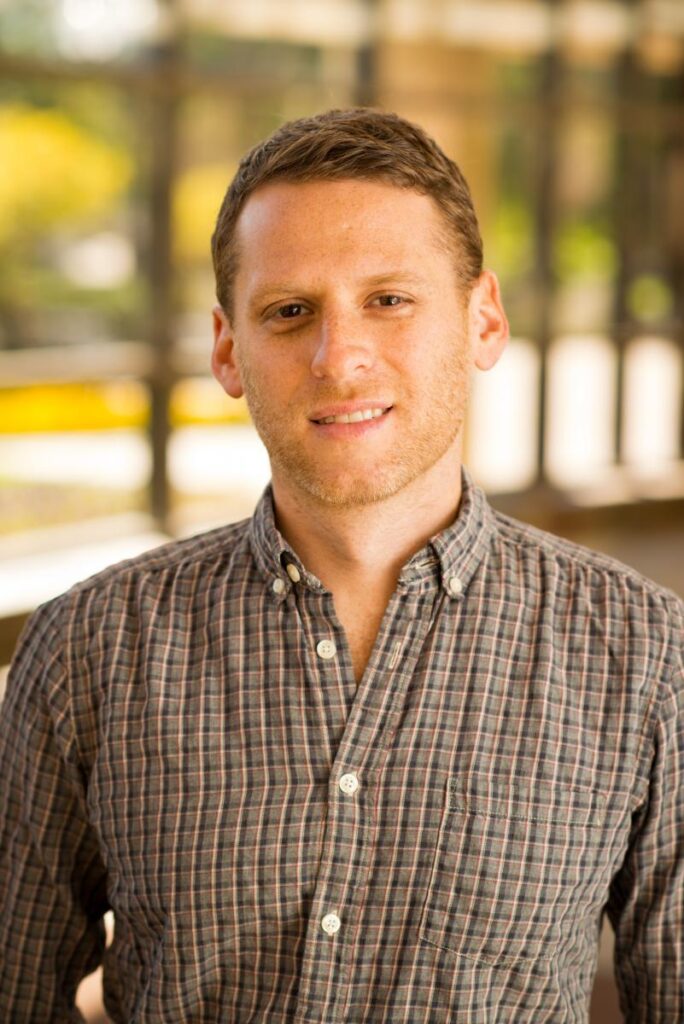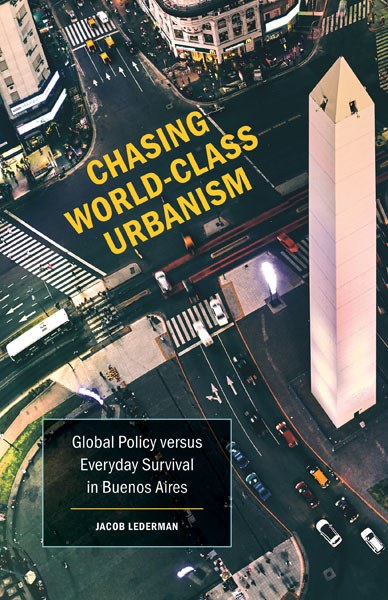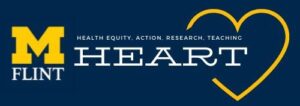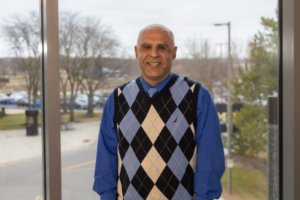
Jacob Lederman, associate professor of sociology, has been awarded a much sought after fellowship at the UM-Ann Arbor’s Institute for the Humanities for the 2024-2025 academic year. Lederman will use this opportunity to work on his next book manuscript. The Institute for the Humanities, located in the U-M’s college of Literature, Sciences and the Arts (LSA), examines and interrogates humanities traditions broadly across space and time, and aims to deepen synergies among the humanities, the arts, and disciplines across the university. In addition to their fellowships, the University of Michigan’s Institute for Humanities also hosts a wide array of public and scholarly events, including public lectures, workshops, discussions and art exhibitions. The fellowships are open to Michigan faculty, graduate students and visiting scholars who work on humanities subjects.

Lederman’s manuscript is going to be on the topic of placemaking. Placemaking is a term used in urban planning to describe the shaping of public spaces to be more beneficial for the communities using those spaces. An example of this that Lederman provided is creating murals in public spaces. In an interview, Lederman said he is particularly interested in the origins of this urban planning framework and how it had spread to expert urban planners and the history of the term in Detroit. This is all built on the framework of his previous book based on his dissertation research which looks at urban planning policies in Buenos Aires, Argentina, and how the policies were adopted and incentivized over other options.
Lederman argues his manuscript is also, broadly speaking, “a critical cultural and political history of this term, placemaking.” He’s specifically looking into the divide between what the policies are trying to accomplish and what they’re actually accomplishing. He states that they aim for democratic policies, yet end up having undemocratic outcomes, which can displace lower income residents.
The book is also related to a larger question about expertise, and will touch on how and why experts in urban planning choose and spread the policies that are becoming more and more common and popularized. In Detroit, he wants to look at why placemaking was appealing to local officials, and what that urban planning work did for the city.
The book will also look into the unintended consequences of these policies being put into place. When asked about whether this concept of placemaking relates to gentrification, he acknowledges that there is some correlation. Lederman remarked that many urban planners believe that placemaking is an antidote to gentrification since it focuses on improvement to public spaces for the communities who live there, and it’s meant to be part of a community effort with the history of the community ties into these spaces. However, his book will be argue that these acts of investment can drive gentrification. It will argue that public art and reinvestment into the community can bring in private reinvestment and redevelopment and unintentionally push out the residents who were there before for the newcomers moving in due to the improvements.
This manuscript started in earnest in late 2021, and since then Lederman has interviewed officials both locally and nationally, and community members as well. The interviews helped him get a better grasp on how national thought leaders in the urban planning sphere have an effect on local officials and the policies they choose to put in place.
Since the bulk of the research is already done, the institute and fellowship is giving Lederman time and space to write up the book manuscript. This also gives him an opportunity to work with other fellows at the institute to receive feedback on the book as he’s writing it. There will be weekly seminars with all the fellows where they can talk about the projects that they are working on and get an interdisciplinary view on their work. As part of the fellowship, fellows also present a lecture in the Hear, Here: Humanities Up Close seminar series, which aims to inspire conversations surrounding humanities research.
Lederman hopes that this book will make an impact on the practice of urban planning by questioning whether placemaking actually creates a more democratic approach to urban planning. Lederman also hopes that this opportunity can help him return to teaching with a renewed set of tools for teaching. He hopes, through this manuscript work, he will be able to reflect on the field and newly emerging schools of thought so he can come back with a deeper understanding of those changes which he could then bring to the classes he teaches at the University of Michigan-Flint.
He stated he was incredibly grateful for the support from both UM-Flint and UM-Ann Arbor, and he was glad the campuses are able to provide opportunities like this to the faculty across the university.




